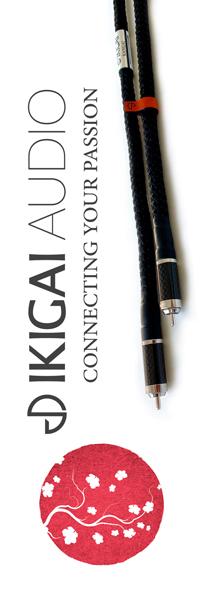Pianist JIMMY AMADIE
Philadelphia Pianist JIMMY AMADIE Releases
Live at the Philadelphia Museum of Art
From His First Public Performance Since 1967
Trio Features Bassist Tony Marino and Drummer Bill Goodwin

On any given day, the Philadelphia Museum of Art can boast any number of masterpieces by the world’s greatest artists, major works by Van Gogh, Renoir, Picasso, or Dalí. But on October 14, 2011, the iconic museum hosted the culmination of a life’s work by one more master, if only for a few hours. On that evening, Philly piano great Jimmy Amadie took the stage for the first time since 1967, 43 years ago, finally showing an enraptured audience the results of decades of mental practice.
That landmark performance is captured on Live at the Philadelphia Museum of Art, which liner-notes writer Neil Tesser calls Amadie’s “last will and testament.” If this album, where Amadie is joined by his long-time rhythm section of bassist Tony Marino and drummer Bill Goodwin, does mark the pianist’s last recording, which is likely given his long-running struggles with tendonitis and cancer, it’s a fitting monument to an unlikely career. “That was one of the happiest days of my life,” Amadie says of the concert. “It was like a rebirth.”
Those familiar with his story can tell you that if anyone knows rebirth, it’s Jimmy Amadie. His inspiring story was recently told on screen in Matthew Marencik’s 30-minute documentary Get Me a Fight, which premiered in 2012 at Villanova University in conjunction with the school’s efforts to establish the “Jimmy Amadie Jazz Academy” based on his educational work.
In his early years, Amadie shared the stage with legends like bebop trumpet legend Red Rodney and saxophonist/bandleader Charlie Ventura, accompanied Mel Tormé for three years and was a member of Woody Herman’s famous Herd. But he was forced off of the bandstand in 1967 by an extreme form of tendonitis in his hands that derailed his playing career for decades.
For thirty years he turned his attention to education, taking private students and writing two influential instructional books, Harmonic Foundation for Jazz and Popular Music and Jazz Improv: How To Play It and Teach It. But he never stopped “practicing,” even if his fingers rarely touched a keyboard. “What you have to know is that I play piano in my head eight to ten hours a day,” Amadie says. “The piano doesn’t know it, but I’m playing.”
 This former boxer from North Philadelphia is a natural-born fighter, though, and after several surgeries and plenty of physical therapy he gradually built his strength to the point where he could get through an entire tune. Amadie made his recording debut shortly before his sixtieth birthday.
This former boxer from North Philadelphia is a natural-born fighter, though, and after several surgeries and plenty of physical therapy he gradually built his strength to the point where he could get through an entire tune. Amadie made his recording debut shortly before his sixtieth birthday.
That first album, Always With Me, was recorded laboriously between 1994 and 1995, with Amadie taking sixteen weeks off between each piece. His first trio album was recorded the same way, with drummer Bill Goodwin and bassist Steve Gilmore painstakingly adding their parts to Amadie’s prerecorded piano tracks. On each album since, however, Amadie has entered the studio and recorded the music live with his band-mates, taking months off afterwards for his hands to heal.
After completing his sixth album, The Philadelphia Story, which featured the all-star line-up of Benny Golson, Randy Brecker, and Lew Tabackin, Amadie felt he’d reached a career pinnacle. “After I did that album,” he says, “I figured I can’t play better than that. I said to God, ‘I can die in peace.’ Now I take it back.”
The portent of those words came clear a few months later when, during a routine surgery, it was discovered that Amadie was afflicted with lung cancer. Now, after finally emerging victorious over one lifelong struggle, he was suddenly faced with another.
“I can’t tell you how devastated I was,” he says, “because after all these years to feel so good about playing, I just couldn’t believe that I could wind up with something else. And I went crazy. I didn’t know what to do.”
What he did is what he’s always done: fight against the pain. He released two more albums, culminating in the trio date Something Special, also recorded with Marino and Goodwin. With no special guests to offer relief from playing, Amadie further damaged his pain-wracked hands. He continues to suffer the after-effects of that decision, but insists that the end result is worth it.
He also continues his battle with cancer, which drove him to the decision to make his long-delayed return to live performance. “Cancer’s a coward,” Amadie has declared on more than one occasion. “He hits you below the belt, he hits you in the back. I’m gonna throw the punches as long as I’m here to throw the punches, but he’s not making it easy. He sneaks up on you and he doesn’t want to make you sick; cancer’s not gonna stop until he kills you. With me, he’s having problems.”
His ailments took their toll on the night of the concert represented on this, Amadie’s ninth album. The pain in his hands, still acute following the recording of the trio record, flared up in especially ugly fashion just before the performance. That was compounded by vision problems caused by medication for his lung cancer which forced Amadie to jettison the new music he’d spent six months writing but now couldn’t read, and to substitute flash cards with basic instructions for two sets of standards.
Not that the audience that filled the museum’s marble staircase minded. Amadie was welcomed back to the public eye with a rousing and emotional ovation. “I’m not showing off that I can play through pain,” Amadie insists. “As far as I’m concerned, once I sit down to play, I’m going to play the best that I can. I’m out there to play because I believe I have something to say. This is what’s keeping me alive. I have something better than the pain: passion. Pain can try to stop you but passion overcomes it.”
Stereo Times Masthead
Publisher/Founder
Clement Perry
Editor
Dave Thomas
Senior Editors
Frank Alles, Mike Girardi, Russell Lichter, Terry London, Moreno Mitchell, Paul Szabady, Bill Wells, Mike Wright, and Stephen Yan,
Current Contributors
David Abramson, Tim Barrall, Dave Allison, Ron Cook, Lewis Dardick, John Hoffman, Dan Secula, Don Shaulis, Greg Simmons, Eric Teh, Greg Voth, Richard Willie, Ed Van Winkle, Rob Dockery, Richard Doron, and Daveed Turek
Site Management Clement Perry
Ad Designer: Martin Perry





Be the first to comment on: Pianist JIMMY AMADIE